|
|
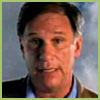 |
|
Robert Krulwich
Praised as "the most inventive network reporter in television" by TV
Guide, NOVA scienceNOW host and executive editor Robert Krulwich got his
start with Pacifica Radio. From there he moved to NPR's "All Things Considered"
for a famously creative stint as a business and economics reporter, then
successfully translated his unique reporting style to CBS "This Morning" in
1984 and to ABC News a decade later. Krulwich returns frequently to PBS,
notably to Frontline and recently as host of NOVA's "Cracking the Code of
Life," an award-winning two-hour program on the human genome. Krulwich received
a bachelor's degree in U.S. history from Oberlin College and a law degree from
Columbia Law School. He lives in New York City with his wife and two
children.
|
Artificial Life
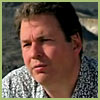 |
|
Mark Bedau
Mark Bedau is Professor of Philosophy and Humanities at Reed College, Adjunct
Professor of Systems Science at Portland State University, and Editor-in-Chief
of the MIT Press journal Artificial Life. His research interests lie in
the source and structure of evolutionary creativity and evolvability, the
evolutionary design of self-assembling chemical systems, the social and ethical
implications of protocell research and development, and the nature of life
itself.
|
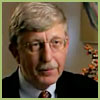 |
|
Francis Collins
Francis
Collins is the director of the National Human Genome Research Institute at the
National Institutes of Health. He led the successful effort to complete the
Human Genome Project, a complex, multidisciplinary scientific enterprise
directed at mapping and sequencing all human DNA and determining aspects of its
function. His own research laboratory continues to be vigorously active,
exploring the molecular genetics of breast cancer, prostate cancer, adult-onset
diabetes, and other disorders. Dr. Collins has been elected to the Institute of
Medicine and the National Academy of Sciences, and has received numerous
national and international awards.
|
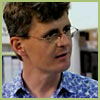 |
|
Jeremy Minshull
Jeremy Minshull is the cofounder and president of DNA 2.0, a company that
specializes in customized synthesis of DNA molecules. A veteran of the
biochemical industry, Dr. Minshull was a post-doctoral fellow at the University
of California San Francisco, and received his Ph.D. from the University of
Cambridge, where he studied basic control of the eukaryotic cell cycle with
Nobel laureate Dr. Tim Hunt.
|
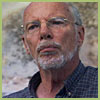 |
|
David Deamer
David Deamer is Chair of Biomolecular Engineering and professor of Chemistry
and Biochemistry at the University of California, Santa Cruz. His research
looks at the role of membranes in the origin of cellular life on Earth. He has
investigated whether cell membrane-like structures were available on the early
Earth and could have provided a home for more complex molecules like proteins
and nucleic acids, leading to a system of molecules with the properties of
life.
|
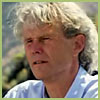 |
|
Steen Rasmussen
Steen Rasmussen was one of the founders of the Artificial Life movement. He is
currently the (acting) Team Leader for the Self-Organizing Systems team at Los
Alamos, and leads the Los Alamos Astrobiology program at Los Alamos, working on
experimental and computational protocells. Dr. Rasmussen is also one of the
principal investigators on the new European Union-sponsored Programmable
Artificial Cell Evolution program.
|
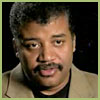 |
|
Neil deGrasse Tyson
Astrophysicist Neil deGrasse Tyson is the Frederick P. Rose Director of the
Hayden Planetarium at the American Museum of Natural History, where he also
teaches. His professional research interests include star formation, exploding
stars, dwarf galaxies, and the structure of our Milky Way. In addition to
dozens of professional publications, Dr. Tyson continues to write for the
public as a monthly essayist for Natural History magazine, and has
hosted and appeared in several NOVA programs.
|
Lightning
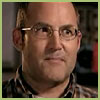 |
|
Joseph Dwyer
Joseph Dwyer is an Associate Professor of Physics and Space Sciences at the
Florida Institute of Technology. After receiving his Ph.D. in Physics from the
University of Chicago in 1994, he worked in such fields as cosmic-ray physics
and gamma-ray astronomy before shifting his interests to thunderstorms and
lightning. In 2002, Dwyer and collaborators discovered that rocket-triggered
lightning produces large quantities of X-rays, allowing for the first time the
detailed study of a mysterious atmospheric phenomenon known as runaway breakdown.
|
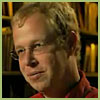 |
|
Kenneth Eack
Kenneth Eack is an Associate Professor of Atmospheric Physics at New Mexico
Tech, and a research physicist at the Langmuir Laboratory for Atmospheric
Resarch. He specializes in several areas of atmospheric physics, primarily
centering on the production of gamma ray and X-ray emissions in
thunderstorms.
|
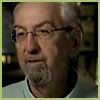 |
|
Martin Uman
Martin Uman leads the University of Florida's Camp Blanding International
Center for Lightning Research and Testing and is the chair of the University's
Department of Electrical and Computer Engineering. The Center is the only place
in the world that artificially triggers lightning on a regular basis as part of
its research. It is also renowned for its work on fulgurites, positive glass
molds made by lightning as it goes through the ground and melts the silicon
content of the soil in its path.
|
 |
|
Chad Cohen
Chad Cohen comes to NOVA scienceNOW after nearly four years as a science correspondent and producer for the National Geographic Channel. He has searched for lost cities under the slums of Cairo, juggled weightlessness and nausea in NASA's "vomit comet," and, most recently, was charged by an Asian one-horned rhino while he was investigating India's wild elephants.
|
Profile: Erich Jarvis
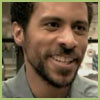 |
|
Erich Jarvis
Erich Jarvis is a neurobiologist at Duke University Medical Center. He heads
a team of researchers in the field of vocal communication. The Jarvis Lab's
research of songbirds, parrots, and hummingbirds sheds light on how the brain
is able to learn the behavior of sound. Jarvis's work on bird brains may have
applications to the treatment speech problems in humans, such as stuttering. In
October 2005, Dr. Jarvis won the National Institutes of Health's Director's
Pioneer Award, which provides $500,000 per year for five years to researchers
pursuing innovative approaches to biomedical research.
|
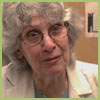
|
|
Rivka Rudner
Rivka Rudner is a professor of Biology at the City University of New York's
Hunter College. Her current work involves studying the structure and expression
of genetic material in B. subtilis, a non-pathogenic bacterium found in
soil.
|
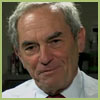 |
|
Harvey Karten
Harvey Karten is a Professor of Neurosciences at the University of California
San Diego. His primary research focuses on the physiological and psychophysical
aspects of human vision, with other projects including studies of the central
pathways of retinal ganglion cells and the comparative anatomy and evolution of
central visual structures.
|
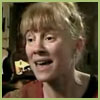 |
|
Sarah Durand
Sarah Durand came to neuroscience by way of field biology, having spent time
with herring gulls long the Maine coast while an undergraduate student at the
marine station of the University of Pennsylvania. After a National Institutes
of Health post-doctoral fellowship at the University of Maryland, College Park,
she joined the LaGuardia college faculty, where she is collaborating with Dr.
Cheryl Harding (Hunter College) in a study that examines the neural basis of
emotional regulation of song.
|
Fish Surgery
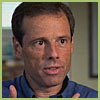 |
|
Greg Lewbart
Greg Lewbart is a veterinarian and a professor of aquatic, wildlife, and
zoologic medicine at North Carolina State University. Dr. Lewbart's specialty
is the care and treatment of ornamental fish such as goldfish, Koi, and other
aquarium fish. He directs NC State's aquatic medicine
residency program, which was the first of its kind in the world. Dr. Lewbart is
also the faculty advisor for the NC State Turtle Rescue Team, which provides
husbandry and medical care to turtles.
|
 |
|
Rebecca Skloot
Rebecca Skloot is a freelance writer, a contributing editor at Popular Science magazine, and a
television correspondent for PBS's NOVA scienceNOW series. She writes feature stories, essays,
and reviews for The New York Times and The New York Times Magazine, National Public Radio, Discover
Magazine, New York Magazine, and others. Skloot specializes in writing about science and medicine
but has covered topics from food politics and goldfish surgery to packs of wild dogs in Manhattan.
|
Alternate Life Forms: Don't Ask the Expert
 |
|
Neil deGrasse Tyson
Astrophysicist Neil deGrasse Tyson is the Frederick P. Rose Director of the
Hayden Planetarium at the American Museum of Natural History, where he also
teaches. His professional research interests include star formation, exploding
stars, dwarf galaxies, and the structure of our Milky Way. In addition to
dozens of professional publications, Dr. Tyson continues to write for the
public as a monthly essayist for Natural History magazine, and has
hosted and appeared in several NOVA programs.
|
Hurricane Katrina
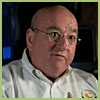 |
|
Walter Maestri
Since 1996, Walter Maestri has been director of emergency management for
Jefferson Parish, La., the bedroom community of the City of New Orleans. On a
daily basis, Maestri prepares plans to deal with any "all hazard" emergencies
for the metropolitan area. From 1970 to 1985 he served in various academic
positions, and from 1985 to 1996 he held various positions in local government.
Maestri's Ph.D. was awarded by the College of Education and Psychology at the
University of Southern Mississippi.
|
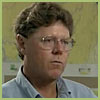 |
|
Ivor Van Heerden
A native of South Africa, Ivor Van Heerden is currently Director of the Center
for the Study of Public Health Impacts of Hurricanes, a Louisiana Board of
Regents Health Excellence Fund Center. He received his undergraduate degree in
geology from the University of Natal in South Africa, and a masters and
doctorate in Marine Sciences from Louisiana State University (LSU). He has
served as Deputy Director of the LSU hurricane center since 1999.
|
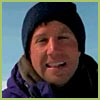 |
|
Peter Standring
Peter Standring is a NOVA scienceNOW correspondent. For over a decade, Standring has traveled the globe as a broadcast reporter, working most recently for the National Geographic Channel. His award-winning pieces have explored a wide range of topics, including the endangered mountain gorillas of Uganda, voodoo culture in West Africa, the volcanoes of Iceland, and medicine men in the Amazon basin. Standring completed his undergraduate studies in English and French at Connecticut's Fairfield University, and he earned an M.S. in Broadcast Journalism at Boston University's College of Communication.
|
|
|


